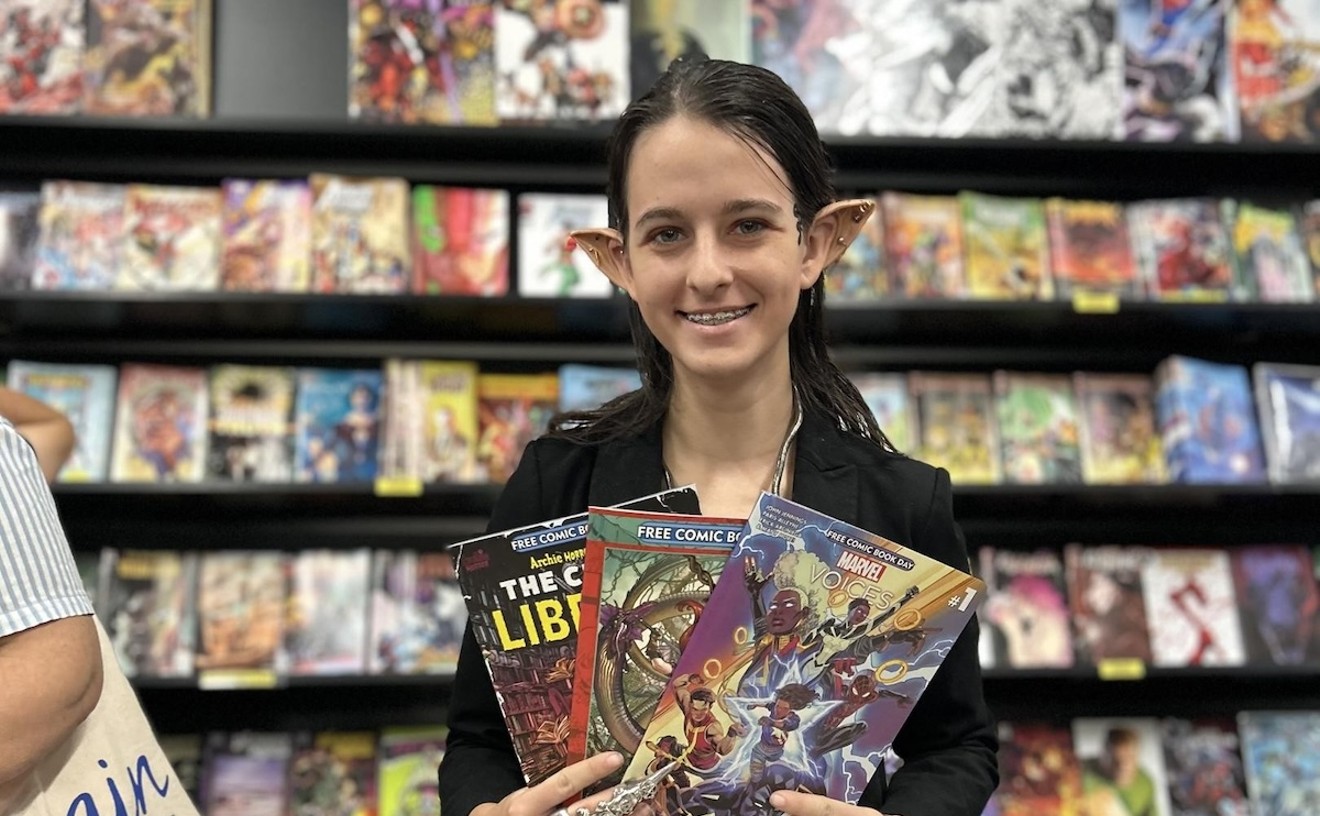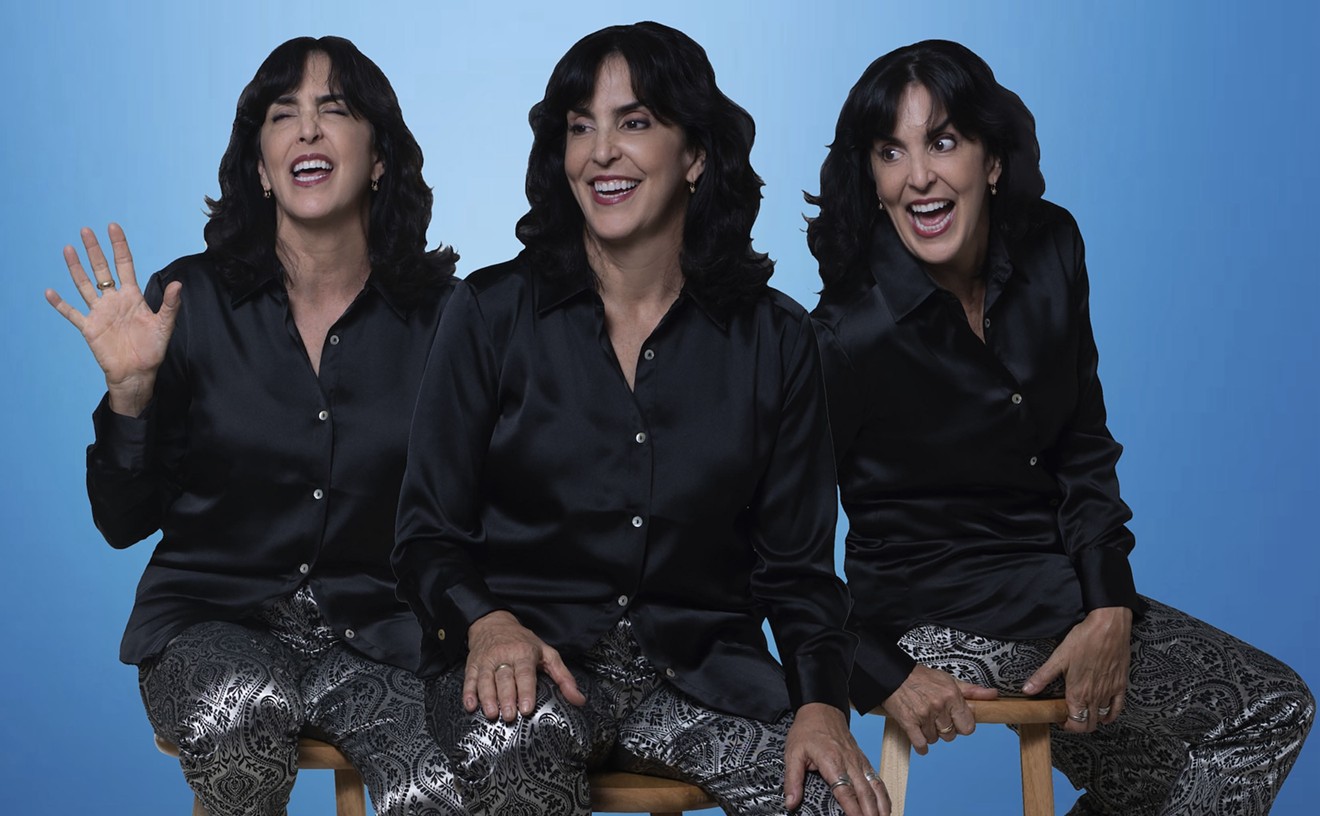If you grew up in Miami, you know it can get kind of tiresome to listen to El Exilio bitch and moan about Fidel Castro. However, the experience only serves to make Cubamerican, José Enrique Pardo's documentary about the first generation of post-Castro Cuban-Americans, all the more refreshing. As a member of that group, it may appear narcissistic to take such a subject on for his debut documentary, but the filmmaker proves thorough and tempered in his approach.
Though it may seem cute and contrived, the term "Cubamerican" wittily addresses the circumstance of a people caught between two nations in a single word. The compact title also speaks to the sprightly feel of the near two-hour documentary. The film springs along through history, across the U.S., from one interviewee to another and back.
Pardo weaves together historical footage and personal pictures, which are given a sense of motion by highlighting several planes of the image. Talking heads are never allowed more than a few seconds of screen time before montage takes over, visually contextualizing what they have to say. All the while, a melancholy score by Carlos José Alvarez of wailing strings, jazzy whispering flutes, and swinging, Cuban folk rhythms hums below the chatter in an almost operatic fashion that never grows obtrusive.
For a debut documentary, balancing these elements, especially within such a personal subject, stands as an accomplishment. The historical context is comprehensive, also covering the oppressive Batista-led Cuba and the problems that inspired Castro's revolution. It skips complicating factors like the Bay of Pigs but does a great job shifting Castro's tone from democratic freedom fighter to communist dictator and the events that shaped that change.
With context in place, Cubamerican seeks to define a generation removed from Cuba at a very young age. The influence of this past is much more abstract to these people who fled the island nation as children with only vague nostalgic memories of playing on the beach. Despite spending most of their lives growing up in the United States, a strong Cuban identity remains. As the artist Jorge Pardo notes, to his generation, Cuba has "a very awkward, melancholic political story that comes with it ... growing up you're always comparing things."
Still, these are people who have not taken anything for granted. National Book Award winner Carlos Eire points out there are people in Cuban prisons whose only crime has been reading a book. All of Pardo's interviewees have great success stories, some presented in footage receiving medals from President Obama. Others are local leaders like Miami-Dade College's president Eduardo Padrón and Florida International University's Dr. Pedro "Joe" Greer, who established the Camillus Health Concern for the homeless.
Pardo does not just focus on intellectuals. There is a high school slacker turned CFO, a free diving world record holder, baseball Hall-of-Famer, and a pair of ballerina sisters, among others. The Cubamericans throughout the documentary recognize their challenges and losses but have risen above them. Their efforts do not seem in spite. Instead, they seem to have harnessed their melancholia for prosaic efforts in philanthropy, art, sports and business. Poet Gustavo Pérez Firmat speaks about a drive called "viveza," that reveals their kind as resourceful and ambitious. "It's more important to be vivo than intelligent," he says.
Throughout, the conversations are thoughtful and sometimes philosophical, but they are most often moving. As much as these subjects admit to having gained from their drive, there is a sense of honest suffering. Something remains missing, and it stirs moving reactions that emphasize home and family, above all. Cubamerican is a beautifully assembled documentary that should not be reserved for only Cubans but also the Americans who live with them.
Cubamerican will have its U.S. commercial debut at the Tower Theater on Friday, June 14, at 6:40 p.m. Director José Enrique Pardo will be present for a question and answer session that night. Visit towertheatermiami.com.
Follow Hans Morgenstern on Twitter @indieethos.
Follow Cultist on Facebook and Twitter @CultistMiami.











